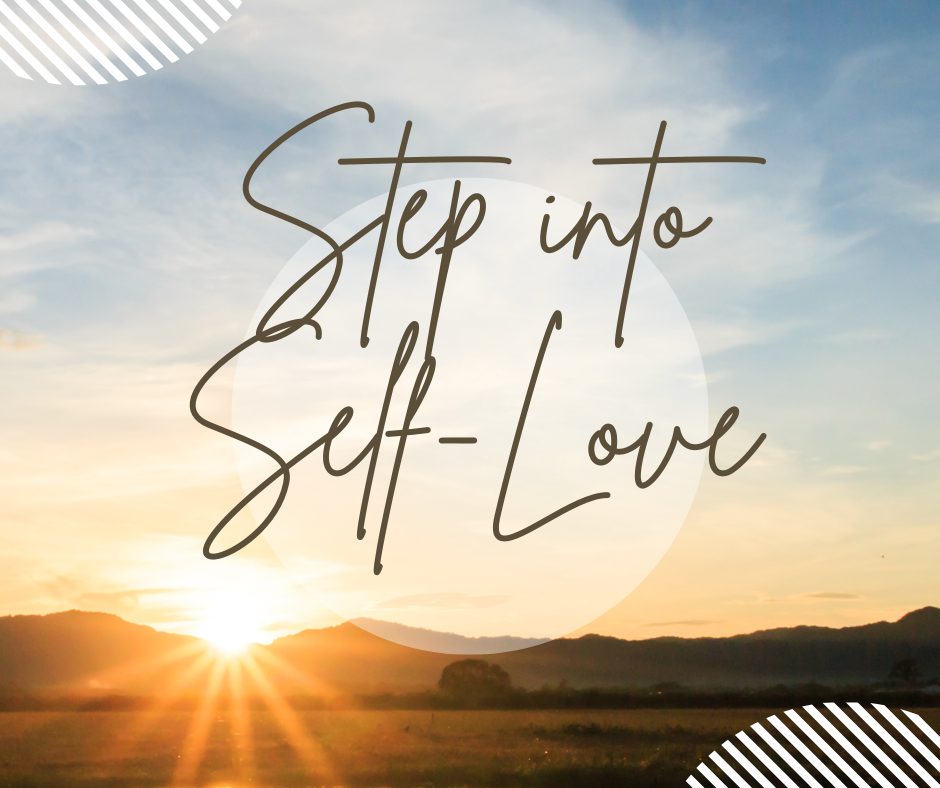
If you’re reading this, you might be feeling a little lost, struggling with self-love, or feeling like you’re somehow falling short. If so, know you’re not alone. Many of us look in the mirror and struggle to see someone we can love. And it doesn’t mean you’re failing—it simply means you’re human.
I hope that you enjoy this article: I Don’t Love Myself: Understanding Why and Taking Steps Toward Self-Compassion.
So Lets begin!
Self-love and mindful self-compassion aren’t things we’re born knowing; they’re skills we can all cultivate over time. For many, it’s complicated by harsh self-criticism, a loud inner critic, difficult past experiences, or a feeling of unworthiness. But kindness and self-compassion are possible, and with gentle steps, you can begin moving toward self-acceptance and inner peace. In this article, we’ll explore some reasons you may feel this way and offer realistic steps you can take to grow self-compassion and self-love.
Why Do I Feel This Way? Common Reasons Behind Self-Doubt and Self-Rejection
When we experience low self-love, it often stems from recurring thought patterns or unresolved emotional pain. Here are some common reasons why so many of us struggle with mindful self-compassion.
- Feeling Unworthy or Inadequate
Maybe you feel you don’t measure up, that others are more successful or deserving. These feelings of inadequacy can become daily burdens, leading to thoughts like, “I’m not good enough” or “I don’t deserve happiness.” Remember, your worth isn’t defined by others; it’s inherent in you, and self-compassion begins when we learn to accept this.
- Struggling with Self-Criticism
If you’re constantly judging yourself, replaying mistakes, or focusing on flaws, it’s no wonder that self-love feels out of reach. Remember, your worth isn’t defined by others; it’s inherent in you, and self-compassion begins when we learn to accept this. Practicing mindful self-compassion can help us gently quiet the inner critic that feeds these feelings.
- Struggling with Self-Criticism
If you’re constantly judging yourself, replaying mistakes, or focusing on flaws, it’s no wonder that self-love feels out of reach. This inner critic can turn even small setbacks into huge failures in our minds. These thoughts are hard to ignore, but they’re often distortions of reality that can be addressed with tender self-compassion and patience, as Dr. Kristen Neff, a pioneer in self-compassion research, suggests.
- Falling into People-Pleasing or Lacking Boundaries
Do you often find yourself saying yes to others and no to yourself? People-pleasers often struggle with self-love because their self-worth is tied to external validation. This can lead to overextending yourself, leaving little energy to focus on your own healing and happiness, making mindful self-compassion even more essential.
- Feeling Isolated or Unseen
Sometimes, a lack of self-love comes from feeling like you don’t belong or that no one really understands you. This loneliness can reinforce feelings of unworthiness, but remember, finding people who see and value you for who you are is part of the journey toward inner peace and self-love.
- Struggling with Past Trauma
For many, past trauma or unresolved pain can be a major barrier to self-love. Trauma can lead us to blame ourselves, creating a deep sense of shame or feeling “damaged.” This is one of the hardest struggles, but healing and self-compassion are possible with time, support, and gentle self-kindness, as self-compassion experts like Kristen Neff emphasize.
- Battling Negative Body Image or Personality Doubts
If you’ve ever looked in the mirror and felt disappointed or wished you were someone else, you’re not alone. Self-love can be especially challenging when we struggle to accept our own appearance or personality. Cultivating tender self-compassion, which involves treating ourselves with the same kindness we’d offer a close friend, can help us navigate these challenging moments. Recognizing that our inner critic doesn’t define us, it allows us to see ourselves more compassionately.
Steps Toward Self-Acceptance and Self-Compassion
If you resonate with any of these feelings, remember that self-acceptance isn’t a sudden transformation. It’s a journey, and you can begin with small steps. Embracing mindful self-compassion is about recognizing your worth and learning to treat yourself with kindness.
- Acknowledge and Embrace Your Uniqueness
Self-acceptance starts with recognizing that you don’t have to fit a mold or live up to anyone’s standard but your own. Your quirks, strengths, and experiences make you uniquely you. Embracing self-compassion means valuing this uniqueness instead of trying to be someone else.
Action Step: Try journaling about qualities you appreciate in yourself. Maybe it’s resilience or a sense of humor. If this feels challenging, remember it’s okay to start small. The more you practice self-acceptance and self-love, the easier it becomes to feel gratitude for who you are.
- Challenge Negative Self-Talk
Self-criticism and the inner critic can be major barriers to self-compassion. When harsh thoughts arise, imagine how you would respond to a friend in your situation. Would you criticize them or offer understanding and encouragement?
Action Step: Practice reframing these thoughts. If you catch yourself thinking, “I’m a failure,” pause and reframe it as, “I’m learning, and mistakes are part of growth.” This gentle shift can open up space for self-compassion and make self-acceptance a bit easier.
- Practice Daily Gratitude for Yourself
Self-compassion isn’t just for things outside of you; it’s for yourself as well. Focusing on what you’re grateful for within yourself can counter feelings of inadequacy and help build inner peace.
Action Step: Write down three things you appreciate about yourself each day. They can be small acts, like helping a friend or showing resilience. Practicing gratitude fosters a kinder inner dialogue and helps you grow in self-acceptance.
- Accept That Growth Is a Journey
Self-acceptance doesn’t mean perfection; it means acknowledging where you are and knowing it’s okay to be a work in progress. Each day, you’re moving toward greater inner peace and self-compassion.
Action Step: Pick one area you’d like to work on, whether it’s body image, personality traits, or overcoming self-criticism. Set small, achievable goals and celebrate every step you take, no matter how small.
Steps Toward Self-Love
Building on self-acceptance. While self-love involves actively caring for and nurturing that acceptance. Here are ways to grow your self-love:
- Make Self-Care Non-Negotiable
Self-care isn’t selfish—it’s essential for self-love. Treating yourself with kindness and mindful self-compassion shows that you matter, just as much as anyone else. This approach emphasizes that prioritizing yourself can be a powerful tool in combating the inner critic.
Action Step: Schedule time for self-care each week. It could be practicing mindfulness, indulging in a hobby, or simply resting. Each time you prioritize self-care, you’re reinforcing your own worth.
- Set and Honor Boundaries
Healthy boundaries are an expression of self-love. They’re about creating space for the things and people who uplift you, which strengthens your inner peace. Practicing boundaries can help nurture the tender self-compassion Dr. Kristen Neff encourages in her work, allowing you to honor your own needs.
Action Step: Start with a simple boundary, such as saying no when you feel overwhelmed. With practice, setting boundaries will come more naturally and will affirm your value.
- Celebrate Your Small Wins
Self-compassion grows when we learn to recognize our progress, no matter how small. Each win, however small, is a step toward self-love and reinforces positive mental health.
Action Step: At the end of each day, write down one thing you did that made you proud, like getting through a tough day or being kind to yourself. Each celebration builds self-acceptance and reminds you of your growth.
- Surround Yourself with Positive Influences
The people we surround ourselves with impact our self-love journey. Finding those who encourage, respect, and see the best in you can help strengthen your sense of worth.
Action Step: Take inventory of your social circle. Seek out friends who support and uplift you, and minimize time with those who drain or discourage you. Building a positive, supportive environment can make a big difference in your healing and self-love journey.
Final Words on Your Self-Love Journey
If self love feels distant right now, don’t lose hope. It’s natural to struggle, and change doesn’t happen overnight. Healing is a process, and you don’t have to do it alone. Working with a coach, therapist, or other professionals can offer guidance, tools, and support that make a world of difference. Remember, seeking help is a sign of strength and self-compassion.
Whenever self-doubt creeps in, remind yourself that every small act of kindness you show to yourself—whether it’s setting a boundary, practicing mindfulness, or celebrating a small win—brings you closer to a more self compassionate you.
Self-love isn’t about becoming someone else or meeting some idealized standard; it’s about honoring who you are in this very moment. The journey may not always be easy, but each step you take in treating yourself with tender self-compassion and prioritizing your mental health will reinforce your sense of worth. Remember that voices like the inner critic don’t define you—they are simply thoughts that you can choose to meet with understanding and patience. Love yourself, even when it feels difficult, because you are worth the effort.
As you move forward, embrace practices that nurture mindful self-compassion and help quiet self-doubt. In the words of Kristen Neff, a pioneer in the field, self-compassion is about treating yourself as you would treat someone you love deeply. When you fall short, remember to love yourself with grace; when you succeed, celebrate and love yourself for all that you are.
Each moment of kindness you extend to yourself is a reminder that you deserve to feel safe, valued, and loved. Love yourself enough to set boundaries, prioritize self-care, and show up for yourself just as you would for a dear friend. Embrace this journey to self love, and know that with each gentle, mindful step, you are building a life grounded in peace, acceptance, and a deep, unshakeable love for who you are.
